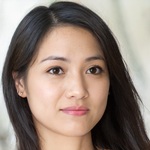
Jiao Ong
Joined over 4 years ago.Bio
Rosacea treatment Singapore - Healthy skin is quality of life
Rosacea is a skin disease that typically starts on the nose, cheeks and chin - like a butterfly. The skin becomes red - typically with inflammation - and in the final stage, there will be swelling of the skin. The redness and inflammation subside quickly after just a few treatments like Rosacea treatment Singapore https://www.cambridgemedical.com.sg/rosacea-treatment/ and with home care. It takes a collaboration between you and your skin specialist to get a good result with your skin. It takes time and patience to calm rosacea skin because the skin condition can be exacerbated by sun exposure, the food you have eaten and hormonal changes (pregnancy, stress, menopause).
But in the end, you'll have nice, healthy skin and won't have to rely on harsh creams from the doctor, which often only work for a short time. Treatments will often start out with a 14-day interval.
What is Rosacea?
Rosacea is a chronic skin disease whose cause is unknown. The disease is typically manifested by the small blood vessels on the face dilating very easily and persistent redness of the skin. In severe cases, you may also develop an inflammatory reaction in the skin with red and yellow pimples. Typically, the condition worsens if you consume alcohol, tea or coffee, spicy food or are exposed to cold, sun or psychological stress.
Symptoms
In the mildest cases, you will have reddening of the skin on your face, especially on your cheeks and nose. You may get small thin red lines as a sign of dilated blood vessels, called telangiectasias.
In more severe cases, in addition to redness of the skin and dilated small blood vessels, you will get inflamed red bumps (papules) and yellow bumps (pustules). If you spot them probably it’s time to search for Rosacea treatment Singapore. Many people with rosacea have discomfort from their eyes. About half will be bothered by redness of the eyes with irritation, dryness or a feeling of foreign bodies in the eye. In about one in five people, the disease begins with eye symptoms, known as ocular rosacea, and only later does the disease set in on the skin. Older men may experience growth of sebaceous glands on the nose, which become thickened and deformed. This is called rhinophyma or, more popularly, "potato nose".
How does the disease progress?
Rosacea is a chronic condition that can go away after treatment, but there is a high risk of new outbreaks.
Who gets it?
Rosacea is very common and typically starts between the ages of 30 and 50. It occurs in about 5% of middle-aged women. It also occurs in men, but somewhat less frequently. It is common in Scandinavia and northern Europe, but rare in Asians and African-Americans.
How is rosacea transmitted?
The disease is not contagious. Although there are inflamed pimples, there are no disease-causing bacteria in the skin.
What causes rosacea?
The cause of rosacea is not known. It may be hereditary and there is evidence that prolonged exposure to sunlight can trigger the disease. Rosacea is a disease that is detected by visible changes on the face.
Treatment of rosacea
Creams, gels and tablets are all available to help rosacea disappear. In the mildest cases, you will receive topical treatment in the form of a gel or cream containing metronidazole, azelaic acid, brimonidine or ivermectin. All preparations are prescription-only and treatment is started with a doctor. You apply the products once or twice a day for 2-4 months (depending on the product). If the condition disappears, you can take a break and resume treatment if it returns.
In more severe cases, or if the local remedies do not work sufficiently, you can receive antibiotic treatment with tetracycline tablets. Alternatively, if you cannot tolerate tetracycline, you can be treated with another antibiotic, erythromycin. Treatment with tetracycline tablets is typically given for 2-3 months, after which treatment can continue with a topical agent. In very severe cases, your dermatologist may prescribe capsules of isotretinoin and Rosacea treatment Singapore. Isotretinoin is then given in a small dose for 3-4 months. Isotretinoin is a substance similar to vitamin A.